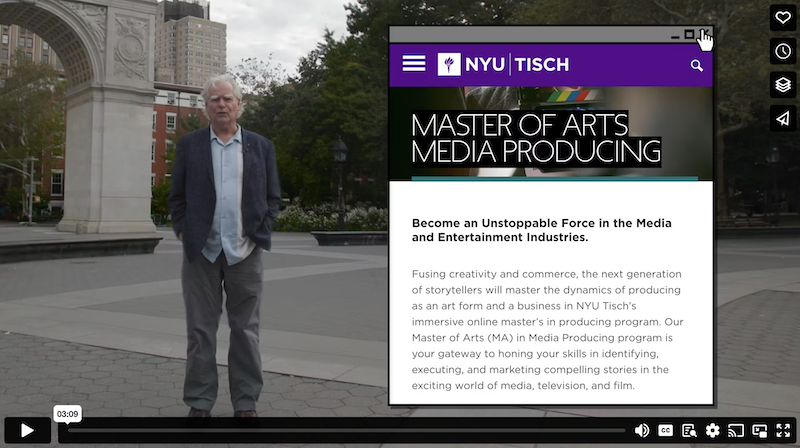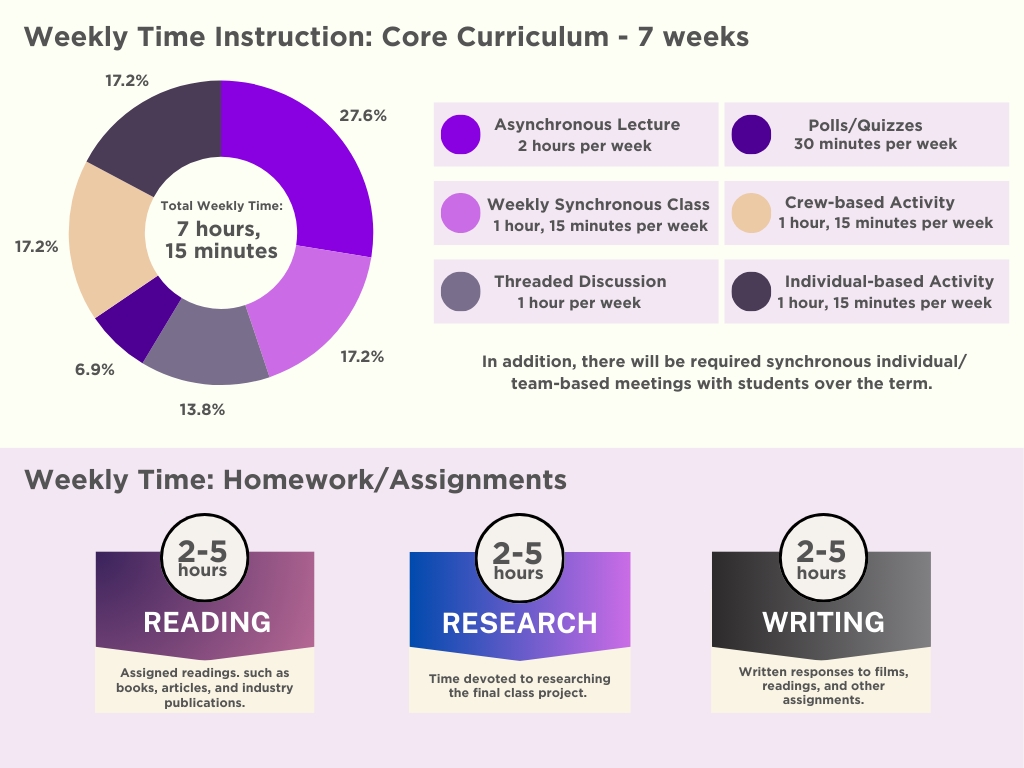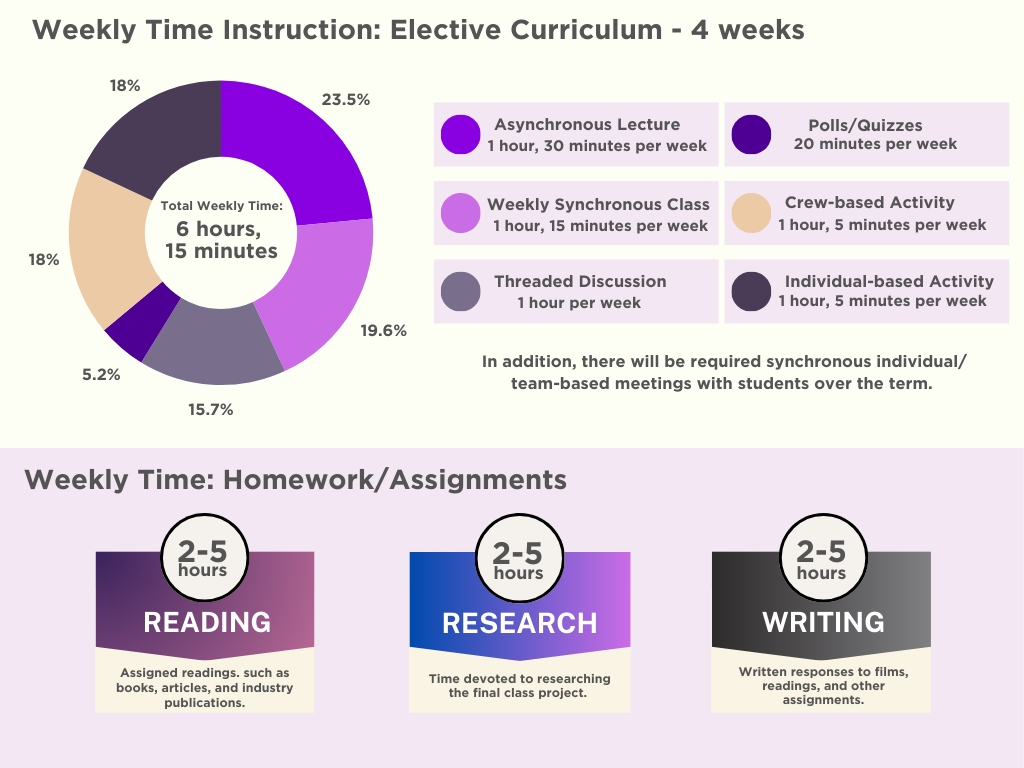Producing Essentials
PROD-GT 2001 | 4 credits | September 2 - October 17, 2025 | 7 weeks
The role of the creative producer in the entertainment industry is integral to bringing a project to fruition. This course covers both the creative and physical production timeline and provides students with an understanding of the producer's role through a semester-long team-based pitch project, which culminates in written and verbal pitch presentations. Students are encouraged to work on a project that best suits their area of interest. The course focuses on the key individuals associated with the dynamics of producing, including producer skill sets, tasks and responsibilities necessary to effectively and efficiently create a film or television project.


